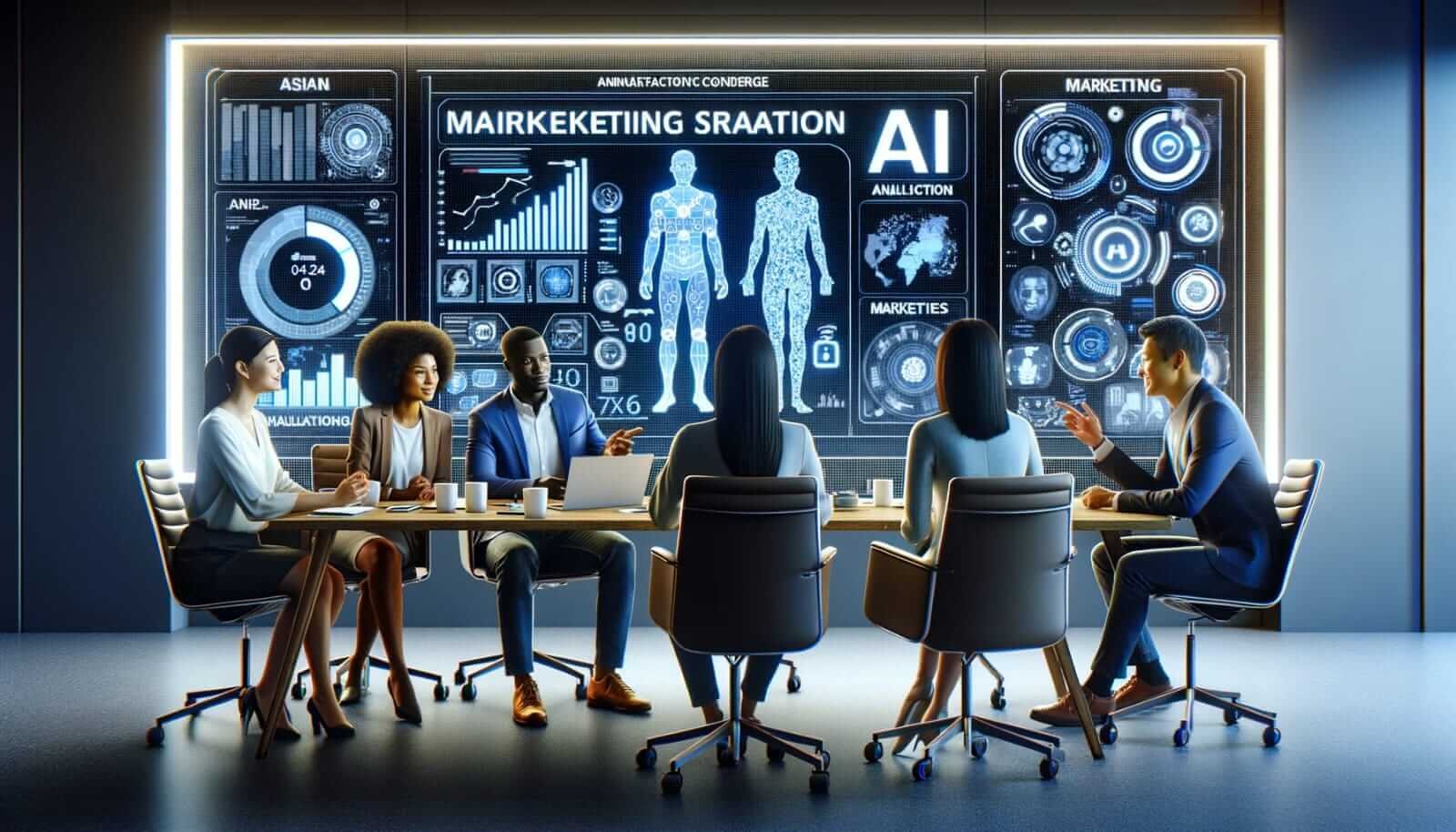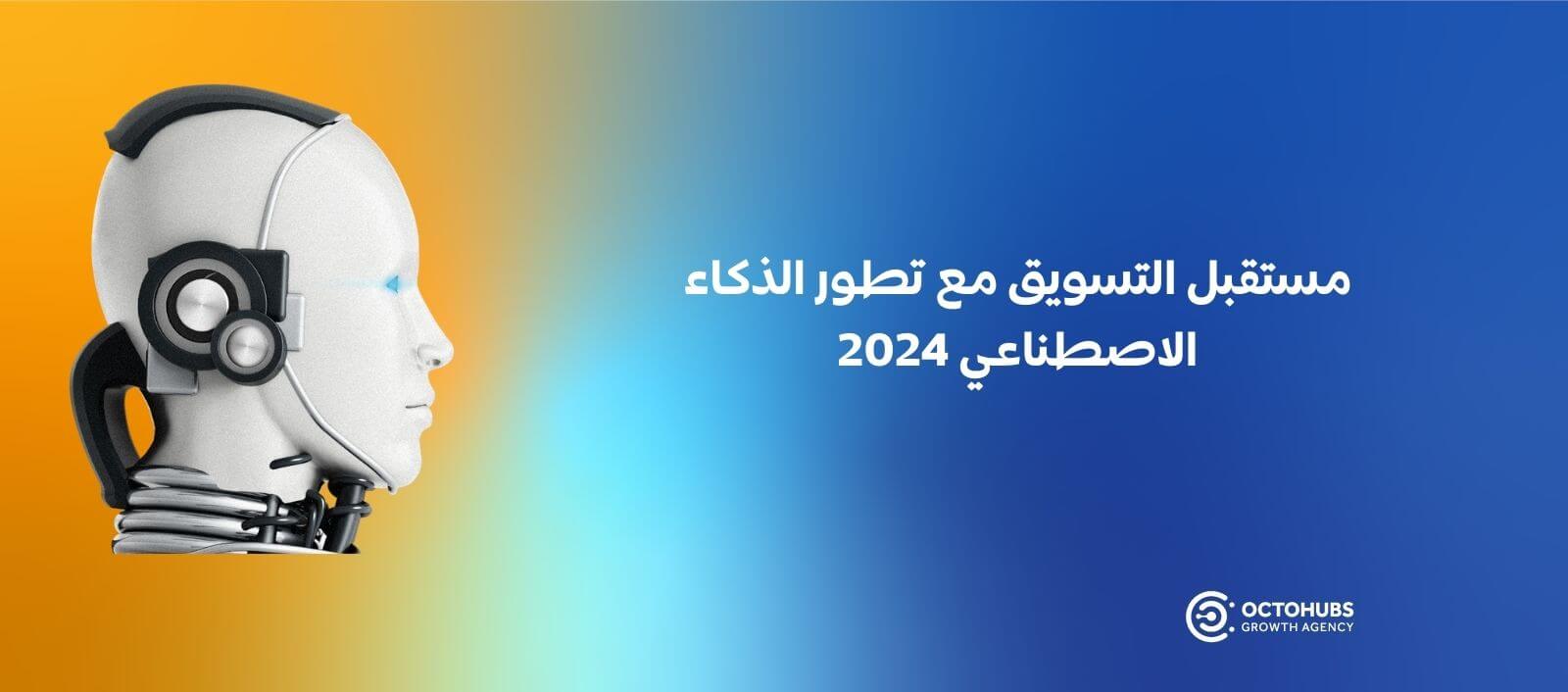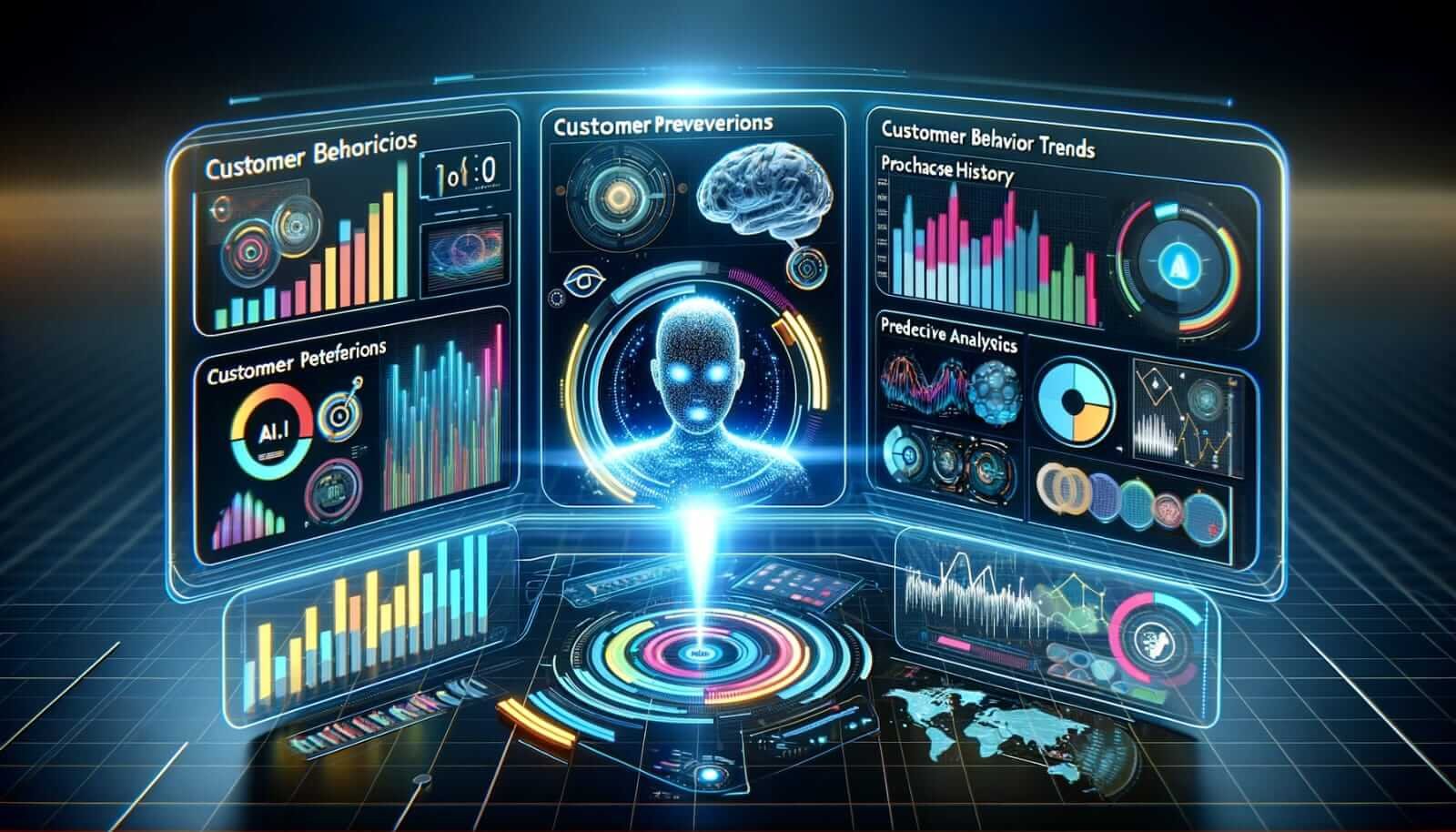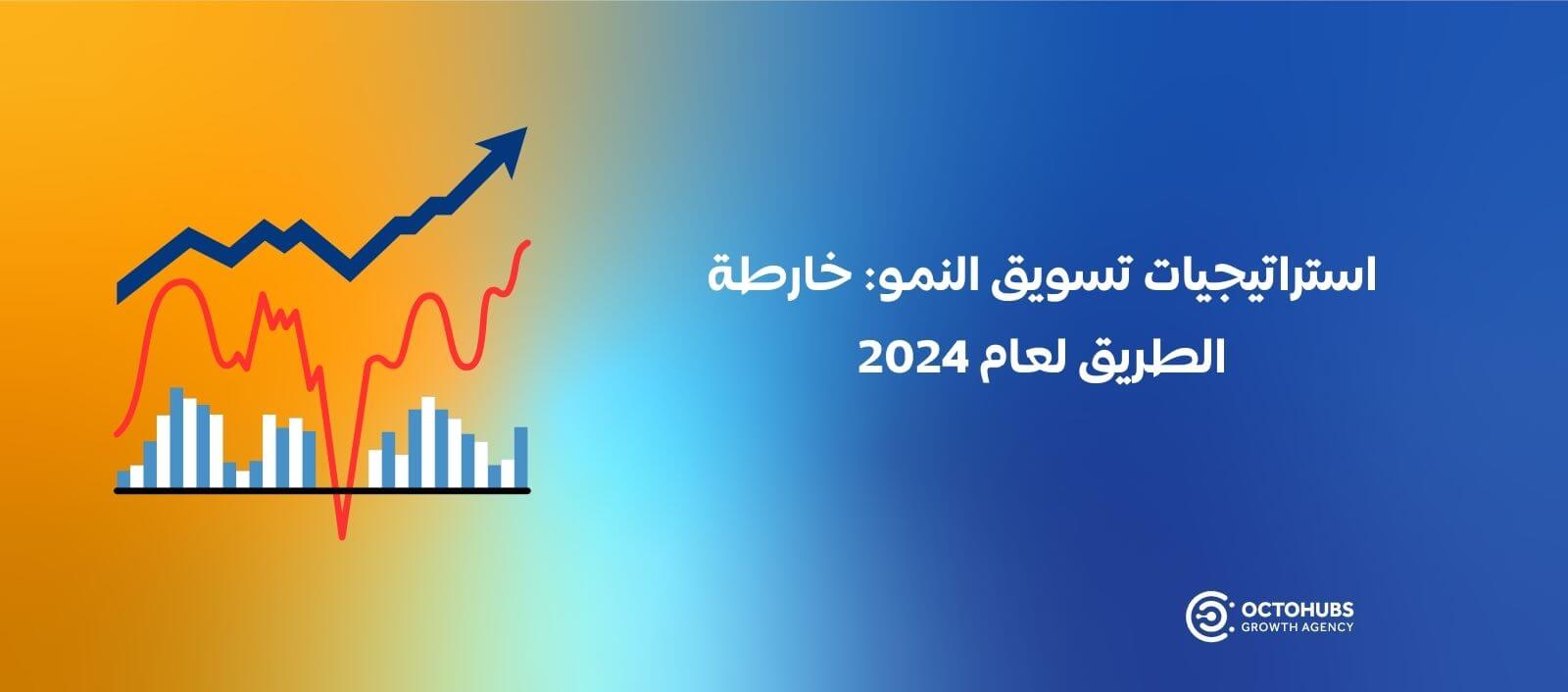Today we are witnessing a tremendous development in the world of artificial intelligence, a development that is reshaping the features of communicating with customers and building new marketing strategies. Artificial intelligence plays a pivotal role in reshaping marketing concepts, opening new horizons for interacting with customers in innovative ways. This article is your guide to comprehending and understanding this profound shift in the world of marketing.
We will explore the profound impact of artificial intelligence and its tools on digital marketing, providing you with practical and innovative strategies for exploiting this technology to enhance your marketing plans and achieve success.
Whether you are a professional marketer or a business owner looking to develop marketing strategies using the latest artificial intelligence tools, this guide is essential for you to stay ahead of the competition in a constantly changing market. Let's discover together what the future holds.
The future of marketing in the age of artificial intelligence
The emergence of artificial intelligence in marketing represents a turning point in not only enhancing existing strategies, but fundamentally changing how companies engage with their audiences. We are now faced with an evolving marketing landscape, completely reimagined to accommodate new technologies.
Hyper-personalization: Strategies tailored to each customer
One of the most notable developments that artificial intelligence will bring about is hyper-personalization, where marketing strategies are designed to suit each individual consumer, based on their behavior and preferences.
Artificial intelligence algorithms are able to accurately analyze data to create completely personalized marketing messages, enhancing customer experience and increasing customer loyalty.
Improving voice and visual search: New dimensions in accessibility
As we move into the era of artificial intelligence, voice and visual search are becoming increasingly important. There is a huge opportunity for marketers to optimize their content for voice and image search, ensuring their products and services are easily discovered.
Real-time customer insights: make fast, effective decisions
AI provides marketers with real-time insights into customer behavior and preferences, allowing marketing decisions to be made that are more dynamic and responsive to immediate changes in the market.
Using predictive analytics in inventory management
AI predictive analytics will play a crucial role in improving inventory management efficiency. This technology allows the demand for products to be accurately predicted, taking into account various factors such as seasonal changes and market trends.
This approach helps reduce overstocking or out-of-stock issues, significantly enhancing supply chain efficiency.
Redesigning user interfaces with the support of artificial intelligence
Artificial Intelligence will transform websites and apps into user-friendly interactive platforms From intelligent search functions that understand natural language queries to AI-driven UI/UX designs that adapt to user preferences.
Artificial Intelligence can significantly enhance the online customer experience. This results in higher participation rates, longer session times, andImprove conversion rates.
Dynamic pricing to achieve competitive advantage
In the coming days, we will see AI-based pricing models that adjust prices in real-time based on various factors such as demand fluctuations, competitor prices, and customer buying behavior.
This flexibility ensures that your pricing strategy is always in line with market conditions, giving a strong competitive advantage and increased profits to stores that adopt this type of artificial intelligence.
Alliance with artificial intelligence to increase marketing impact
 In the near future, marketers and business owners should consider artificial intelligence as a true business partner, transforming how we communicate with customers and improving marketing efforts by:
In the near future, marketers and business owners should consider artificial intelligence as a true business partner, transforming how we communicate with customers and improving marketing efforts by:
- Powering CRM with AI: Integrating AI into CRM opens new horizons for engagement and loyalty.
- Personalization at scale: Today, content and marketing campaigns can be customized at scale, increasing... Conversion rates.
- Harness social media insights: Analyze trends and track brand mentions, while understanding consumer sentiment.
- AI-Powered Content Creation and SEO Optimization: Using AI to create engaging, search engine-optimized content.
- Predictive Marketing: Using predictive analytics to predict consumer behavior and future market trends.
Practical tips for benefiting from artificial intelligence in marketing
 Integrating AI into a marketing strategy may seem complicated, especially to non-specialists, but with the right approach, this challenge can be fun and effective. Here are some detailed tips for using AI effectively in your marketing efforts:
Integrating AI into a marketing strategy may seem complicated, especially to non-specialists, but with the right approach, this challenge can be fun and effective. Here are some detailed tips for using AI effectively in your marketing efforts:
- Start small and expand carefully:
- Start your AI project with simple, low-risk initiatives, such as implementing Chatbots to interact with customers.
- Then gradually expand to more complex uses such as analytics and personalized marketing.
- Pay attention to data quality and security:
- Make sure the data you collect is accurate to provide a solid foundation for AI.
- Respect privacy laws and ethical considerations when collecting anddata usage.
- Commitment to continuous learning and adaptation:
- Stay up to date on the latest developments in artificial intelligence and apply what you learn in your strategies.
- Create a culture of learning within your team and encourage engagement and training.
- Use experimentation and A/B testing:
- Try different marketing techniques using AI and measure their effectiveness.
- Leverage A/B testing to determine the best strategies and content.
- Combining artificial intelligence and human expertise:
- Use AI for analysis and data-driven decision making.
- Leverage human creativity and a deep understanding of your audience to strategize and create content.
- Set clear goals and measure ROI:
- Set specific goals for your AI initiatives to determine their success.
- use Key Performance Indicators To track performance and constantly improve your strategies.
By following these tips, you will be able to integrate AI into your marketing in a way that supports your goals and enhances your success in the digital marketplace.
Marketing experts’ advice to benefit from artificial intelligence during the year 2024
 As we approach 2024, it becomes clear that artificial intelligence (AI) in marketing is not only constantly evolving, but its adoption is significantly increasing. Marketing experts around the world offer vital advice to companies looking to efficiently integrate artificial intelligence into their marketing strategies.
As we approach 2024, it becomes clear that artificial intelligence (AI) in marketing is not only constantly evolving, but its adoption is significantly increasing. Marketing experts around the world offer vital advice to companies looking to efficiently integrate artificial intelligence into their marketing strategies.
- Flexibility and adaptation to changes:
- Recognize that the field of artificial intelligence is constantly evolving, with new technologies constantly emerging.
- Develop marketing strategies that are adaptable and flexible to rapid changes in technology.
- Data ethics and privacy:
- Ensure compliance with laws on data privacy and ethical use of data.
- Conduct periodic audits to ensure ethical use of AI and protect customer privacy.
- Boost AI knowledge within the team:
- Providing continuous training to the team on the latest technologies and their applications in marketing.
- Encouraging a culture of curiosity and innovation in the field of artificial intelligence.
- The balance between artificial intelligence efficiency and human creativity:
- Emphasizing the importance of human creativity and deep understanding of customer emotions in integration with artificial intelligence.
- Developing a workflow that integrates artificial intelligence and human skills in an integrated manner.
Effectively adapt to the challenges presented by integrating AI into marketing, while maintaining a balance between advanced technology and basic human values.
Conclusion :
When companies and online stores rely on artificial intelligence, they are not just adopting new technology; Rather, it is witnessing a radical transformation in how it manages its business, interacts with customers, and makes strategic decisions. Artificial intelligence is more than just a technological tool; It acts as a catalyst for continuous innovation and development, giving companies a unique opportunity to redefine their position in the digital market and provide added value to their customers. In the world of e-commerce and retail, AI is not only the future of the industry; Rather, it is its renewed present, which is reshaping the commercial landscape in profound and exciting ways.








